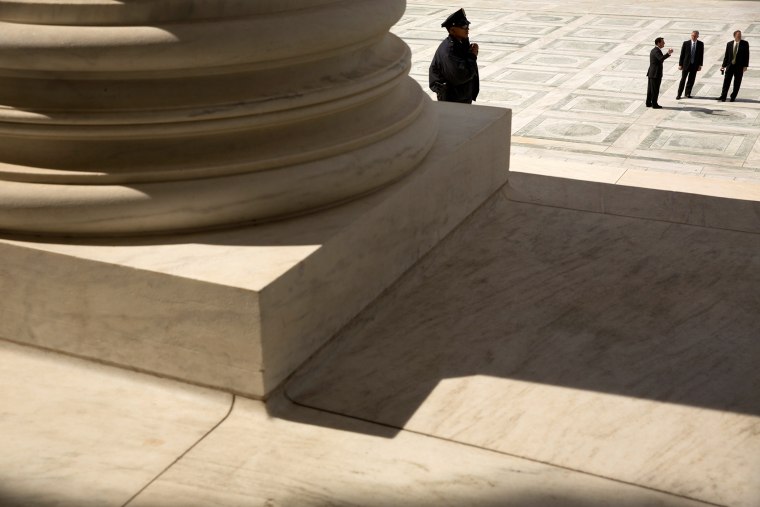Voting-rights advocates have been working for years, carefully and methodically, to make a compelling legal case against partisan gerrymandering. Today, those efforts collapsed in the face of a 5-4 ruling from the U.S. Supreme Court.
The Supreme Court on Thursday refused to find that political partisanship was so extreme in drawing the maps for congressional districts in two states that it violated the Constitution. The result was a setback for advocates of political reform.In separate votes, the court rejected claims that partisan politics played too great a role in the way congressional districts were designed in North Carolina to the benefit of Republicans and in Maryland to the advantage of Democrats.On a 5-4 vote in the North Carolina case, the justices found that the "partisan gerrymandering claims present political questions beyond the reach of the federal courts." Chief Justice John Roberts wrote in his majority opinion that states and Congress could pass laws to prevent politically oriented districts, but asking the courts to do so would be "an unprecedented expansion of judicial power."
The full ruling in Rucho v. Common Cause is online here (pdf.)
Racial gerrymandering is still impermissible, though those protections now appear more limited. As The Atlantic's Adam Serwer noted, "All this means is that when parties discriminate against minorities, they'll say they're being partisan and not racist so they can get away with it."
I've seen some reactions this morning that emphasized that the high court's ruling is good for Republicans, and I suppose that's true. But the larger point should be that the decision is bad for democrats, not Democrats.
Gerrymandering is routinely abused in ways that undermine the health and integrity of the electoral system. That such corruption is generally associated with GOP politics is, in its own way, a legitimate scandal, but today's setback is for those principally concerned with the integrity of the process, not for one party over another.
It's a point Justice Elena Kagan drove home nicely in an unforgiving dissent:
"For the first time ever, this Court refuses to remedy a constitutional violation because it thinks the task beyond judicial capabilities."And not just any constitutional violation. The partisan gerrymanders in these cases deprived citizens of the most fundamental of their constitutional rights: the rights to participate equally in the political process, to join with others to advance political beliefs, and to choose their political representatives. In so doing, the partisan gerrymanders here debased and dishonored our democracy, turning upside-down the core American idea that all governmental power derives from the people."These gerrymanders enabled politicians to entrench themselves in office as against voters' preferences. They promoted partisanship above respect for the popular will. They encouraged a politics of polarization and dysfunction. If left unchecked, gerrymanders like the ones here may irreparably damage our system of government."
Kagan added, "The practices challenged in these cases imperil our system of government." She went on to say that the majority's ruling was "tragically wrong."
Looking ahead, the fight for gerrymandering opponents now shifts away from the judiciary. Congress could, for example, approve electoral reforms that outlaw the practice -- they're already part of the House Democrats' "For the People Act" (H.R. 1) -- and there are opportunities for state lawmakers to pass reforms of their own.
What's more, in case the next round of state legislative elections weren't important enough, they just became even more critical.
